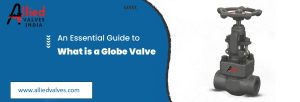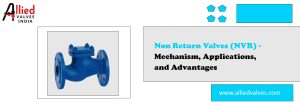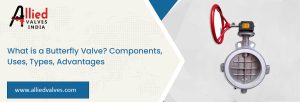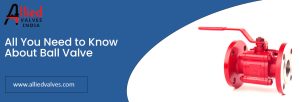A ball valve is a flow control device that uses a hollow, perforating, and pivoting ball to regulate liquid or gas flow. It is rotated using a handle or lever to open or close the valve, with the valve opening when the ball hole is in line with the inlet and closing when the handle rotates it 90 degrees.
Ball valves are popular in industrial applications due to their reliable sealing, durability, and ability to withstand high-pressure and temperature conditions. They are available in various sizes and materials and are preferred over gates and globe valves for shut-off and control applications.
Types of Ball Valves
There are the most common types of Ball Valves:
- Standard
- Hydraulic
- Flanged
- Vented
Ball valve types can also be classified based on the type of metal and materials used to manufacture it, as well as the dimensions and sizes. Ball valves are available in different sizes and dimensions to feed the different industries and purposes.
Ball Valves based on materials are classified into the following types:
- Mild Steel Ball Valve
- Brass Ball Valve
- Forged Carbon Steel Ball Valve
- Iron Ball Valve
- Stainless Steel Ball Valve
- PP Ball Valve
Applications of Ball Valve
Ball Valves are used in many different industries and hydrocarbon process applications:
- Oil and Natural Gas Industry
- Manufacturing Sectors
- Chemical Storage
- Residential Uses
How Does a Ball Valve Work?
Ball valves are shut-off valves that use a hollow ball to start or stop material flow through the valve. The ball rotates to align with the inlet and outlet of the valve’s body, allowing materials to flow. To close the valve, the actuator moves the ball to a point where the bore becomes perpendicular to the flow path, stopping materials from flowing.
Ball valves require a 90-degree turn of the actuator to fully open or close, and are not suitable for throttling applications. They are most suitable for applications requiring tight shutoff, such as controlling gas flow. Ball valves can be uni-directional, bi-directional, or multi-directional, depending on the number of valve seats and ports. They can be unidirectional if flow enters through a designated port, and multiport if flow enters through multiple ports. Rapid opening and closing can damage downstream equipment due to surge pressure.
Applications of Ball Valves
- Provide reliable leak protection for various industrial applications.
- Low-pressure drop allows quick opening and closing, ideal for liquid and gas applications.
- Multifaceted, suitable for subsea, underground, and cryogenic services.
- Used in low-point drains and high-point vents for liquid, gas, and fluid applications.
- Regulate cooling water and feed water systems.
- Used in feed lines, turbine and compressor skids, crude oil plants, polymer plants, LNG plants, field gas plants, industrial gas processing plants, oil refineries, hydrocarbon processing, and automated process applications.
- Stainless steel ball valves are used in petroleum refining, desalination, and brewing.
Why Choose Ball Valve
If you are looking for a reliable Ball valve manufacturer in Ahmedabad or a ball valve supplier to get high-quality ball valves with different specifications, having to vary with metals and dimensions, for any kind of use or installation, contact Allied Valves India and ask for super guidance the ball valves as per your requirement. The price list of the ball valve is mentioned in our online store. The price list of the ball valve in India varies as per the materials used in the ball valves, as well as the dimensions of the ball valve.






